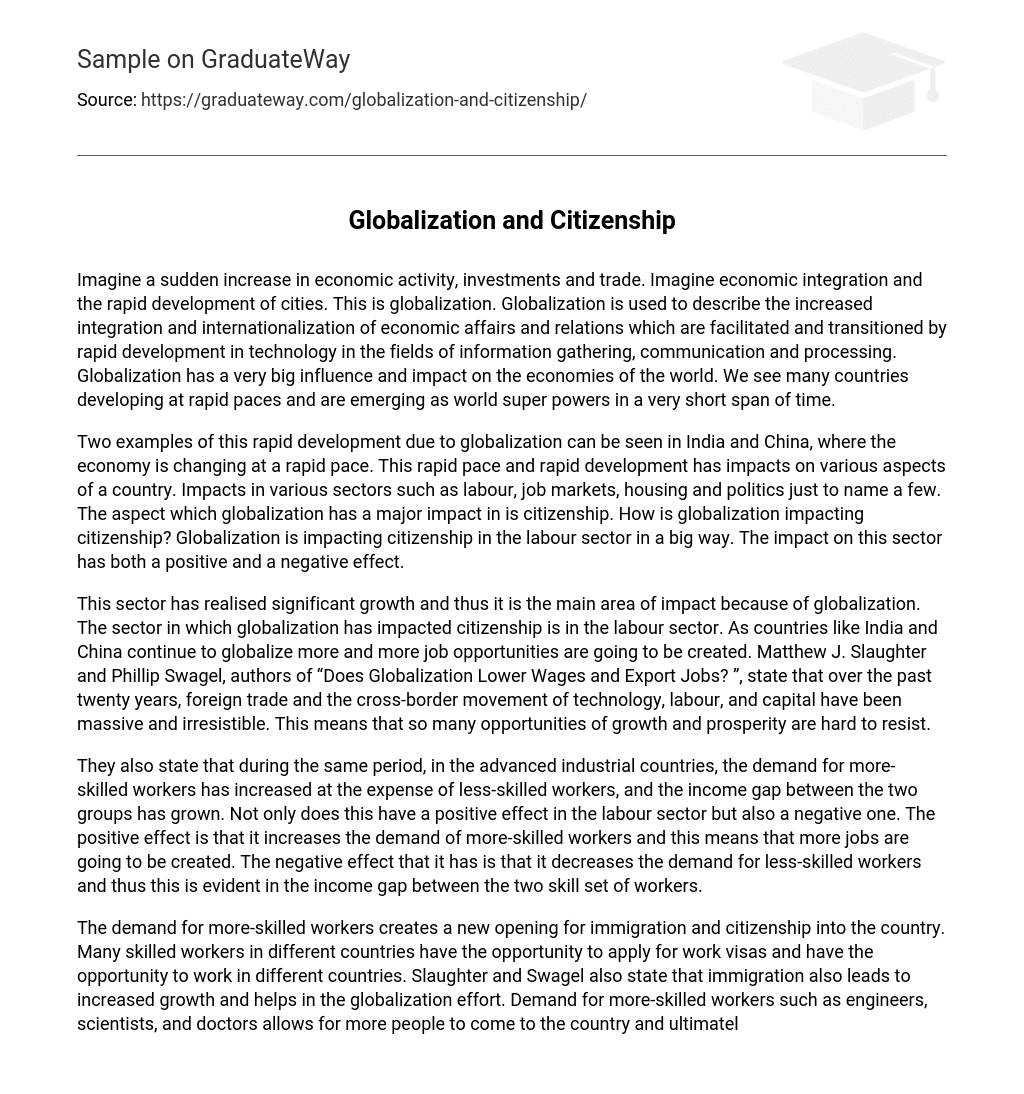Globalization is the speedy expansion of economic activity, investments, and trade, along with rapid urban development. It entails the integration and internationalization of economic affairs and relationships, made possible by technological advancements in information gathering, communication, and processing. The impact and consequences of globalization on global economies are significant, leading many countries to undergo rapid development and emerge as major powers within a relatively short period.
Globalization is driving fast progress in countries such as India and China, leading to substantial consequences on different aspects of their economies. This development can be seen in areas like labor, job markets, housing, and politics. Nevertheless, citizenship is the aspect that undergoes the most profound impact from globalization. Specifically, the labor sector bears significant effects from globalization’s influence on citizenship, encompassing both positive and negative outcomes.
Globalization has led to significant growth in the labor industry, specifically in countries such as India and China. This continuous process has created numerous job opportunities in these nations. In their article “Does Globalization Lower Wages and Export Jobs?”, Matthew J. Slaughter and Phillip Swagel emphasize the substantial foreign trade, technology movement, labor movement, and capital movement that have occurred in the last two decades. Hence, it is challenging to overlook the potential for growth and prosperity in this sector.
According to the authors, there has been a shift in demand for workers of different skill levels in advanced industrial countries. Skilled workers are now in higher demand while less-skilled workers face reduced demand, resulting in a widening income gap between these two groups. The labor sector experiences both positive and negative outcomes from this change. Skilled workers enjoy increased job opportunities, while less-skilled workers have fewer prospects, thus worsening the income disparity.
The need for additional skilled workers creates a new chance for immigration and acquiring citizenship in the country. Skilled individuals from different countries can apply for work visas and find employment in various nations. According to Slaughter and Swagel, immigration can also improve growth and contribute to globalization. The demand for highly skilled professionals such as engineers, scientists, and doctors allows more people to immigrate permanently to the country.
Globalization has a beneficial effect on citizenship as it boosts the need for highly skilled workers and permits a larger flow of human capital, ultimately benefiting the economy. Nevertheless, it is crucial not to disregard the adverse effects on less-skilled workers who face limited migration opportunities due to their lower skill level.
This emphasizes the difference between the two factions and exposes differences in income, demand, citizenship rates, opportunities, and gender dynamics. While some view globalization as a hopeful period of economic and technological advancement, others see it as an unfair system that continues to foster inequality. Nonetheless, it is essential for all groups to reap the advantages of this prevalent phenomenon known as globalization in order to achieve greater prosperity.
Although the idea of equal wealth sharing, regardless of skill level, is often associated with communism, it is important to recognize that wealth distribution should be determined by a person’s skills and other relevant factors. It is crucial for everyone to benefit from the allocation of wealth, regardless of its quantity. Given that we all inhabit the same world and planet, it would be advantageous for us to prosper collectively and address global problems such as poverty. This inquiry encourages critical thinking as globalization advances.
BIBLIOGRAPHY





